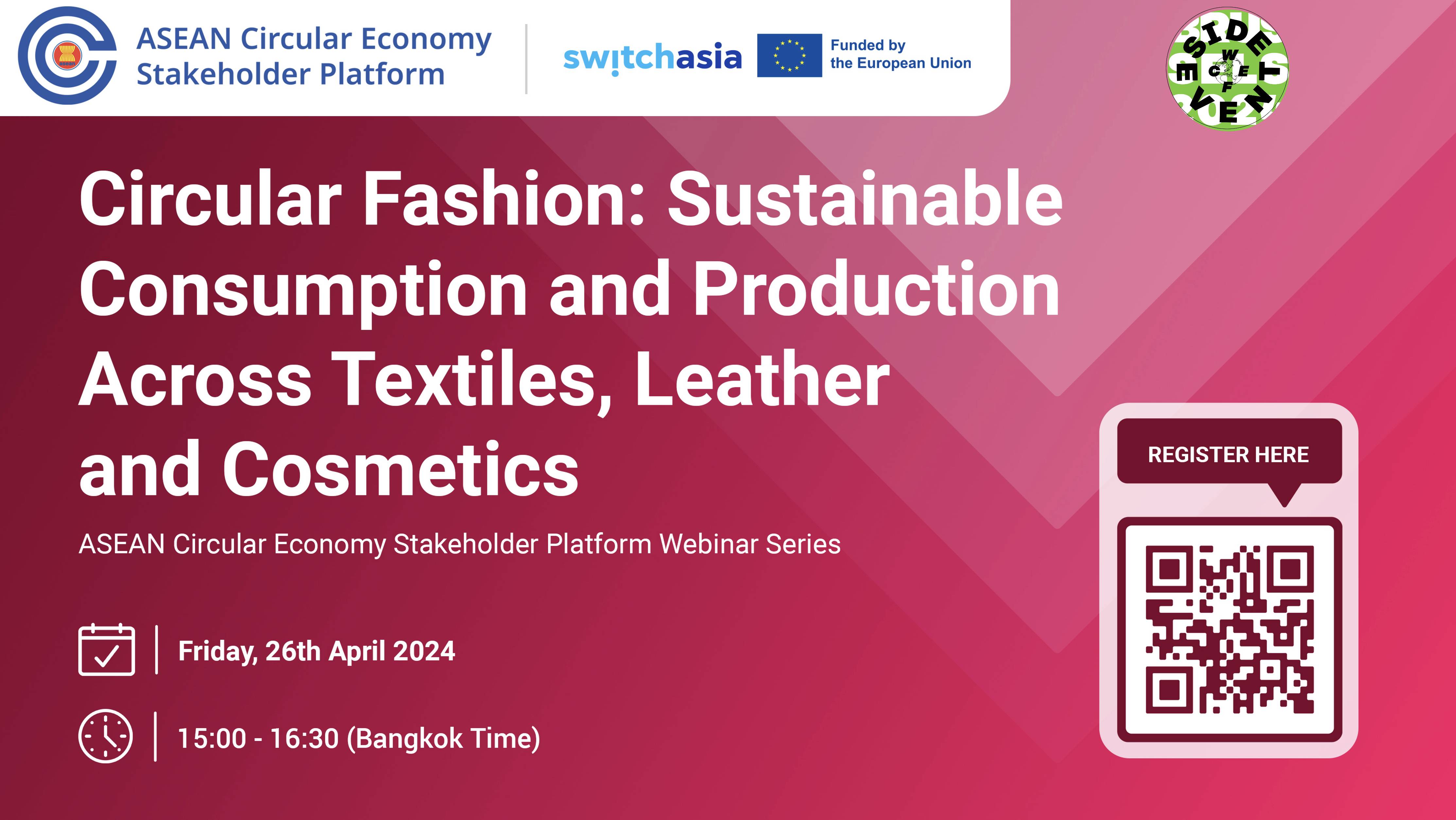
WHEN: 26 April 2024 I TIME: 15:00 - 16:30 (Bangkok Time) I Platform: ZOOM I Watch the Recording HERE I This is an official World Circular Economy Forum Side Event
Background:
Fashion has always been a crucial aspect of human society, influencing trends, lifestyles, and the economy. Currently, the fashion industry ranks as the world's third-largest manufacturing sector, trailing only behind the automobile and technology sectors. It encompasses various subsectors, including textiles, garments, ready-to-wear, leather, footwear, accessories, beauty, and cosmetics. As the industry expanded rapidly to meet the insatiable demand for new fashions and styles, its environmental footprint also grew significantly across the entire value chain, from material production to disposal.
The textile and leather industries are among the world's most water-intensive and polluted sectors. The untreated effluents from fabric dyeing and leather processing contain toxic chemicals, heavy metals, and suspended pollutants, and are highly alkaline. Fabric dyeing alone accounts for 20% of global wastewater generation.[1] The combined release of untreated wastewater adversely affects community and human health, as well as the health of plants, animals, and ecosystems. These industries also consume a significant amount of energy, necessitating high-temperature water to facilitate the absorption of chemicals and dyes in the materials.
Furthermore, the fast fashion business model exacerbates the environmental and social impacts of the fashion industry through the rapid production, consumption, and disposal of low-quality products made by inexpensive labour. These products, often made from synthetic fabrics like polyester, are cheap but have a considerable environmental cost. Synthetic fibres, derived from fossil fuels, require approximately 1.3 billion barrels of oil annually and contribute to half a million tons of microplastics from washing and cleaning garments to enter our oceans each year.[2] An estimated 87% of all produced fibres end up in landfills or are incinerated, amounting to 92 million tons of textile waste annually, predominantly from fast fashion.[3]
Moreover, packaging which made fashion products distribution possible are creating additional environmental burden. The overuse and mismanagement of plastic packaging is especially problematic due to their long lifecycle and remining in our environment through multi-generations. The cosmetic industry particularly has packaging waste problems. About 95% of all cosmetic packaging, predominantly plastic, is discarded after use, totalling around 114 billion pieces annually.[1]
In ASEAN and other developing countries, beauty products are often sold in sachets, providing affordable options to low-income consumers but exacerbating environmental issues due to improper waste management. These issues include fossil fuel consumption and carbon emissions from packaging production and the water-intensive nature of rinse-off cosmetics for body, hair, and skin care.
Recognising the interconnectivity of the sectors within the fashion industry, holistic approaches that promote sustainable consumption and production (SCP) strategies and a circular economy involving multiple stakeholders are essential for transformation.
Sustainable production practices, such as circular fashion, using eco-friendly materials, and leveraging technology and innovation, can reduce the environmental footprint of each fashion item. Consumers also need to be educated and encouraged to adopt sustainable consumption habits to complete the fashion industry's cycle towards sustainability.
Webinar Session:
The ASEAN Circular Economy Stakeholder Platform (ACESP) and the EU SWITCH-Asia Policy Support Component (co-host), are convening the webinar, Circular Fashion: Sustainable Consumption and Production Across Textiles, Leather, and Cosmetics with the main objective to highlight how sustainable consumption and production strategies throughout the fashion industry can reduce resource consumption, waste generation, and pollution emission.
About the ASEAN Circular Economy Stakeholder Platform Webinar Series
The webinar series, hosted by the ASEAN Circular Economy Stakeholder Platform and co-hosted by the EU SWITCH-Asia Policy Support Component, is strategically designed to foster the adoption of Sustainable Consumption and Production (SCP) practices in the context of the Circular Economy (CE) across the ASEAN region. Recognising the need for a comprehensive approach addressing both supply and demand aspects and bringing together diverse stakeholders, these webinars intend to raise awareness, promote understanding, and facilitate an inclusive dialogue on making the circular economy a tangible reality in the ASEAN region. Thereby, the series aims to strengthen networks and knowledge exchanges among institutions working towards shared sustainability goals.
Chairs
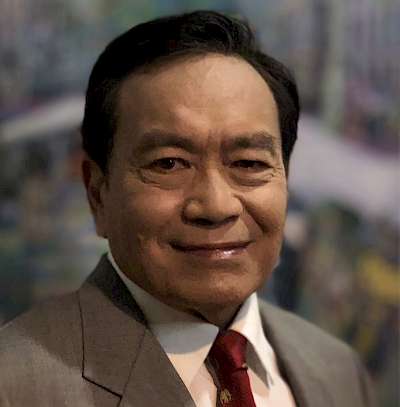 Anthony Pramualratana, ASEAN Circular Economy Stakeholder Platform
Anthony Pramualratana, ASEAN Circular Economy Stakeholder Platform
In July 2022, Dr. Anthony Pramualratana assumed the role of Deputy Executive Director at the ASEAN Centre for Sustainable Development and Studies Dialogue (ACSDSD). The ACSDSD garnered support from leaders during the 34th ASEAN Summit in Bangkok in June 2019 and was officially launched at the 35th ASEAN Summit in Bangkok in November 2019. Its primary objective is to advance research on specific sustainable development issues of mutual interest and facilitate dialogue among ASEAN Sectoral Bodies, Dialogues, and external partners, employing a comprehensive and cross-cutting approach. In September 2022, Dr. Pramualratana played a key role in establishing the ASEAN Circular Economy Stakeholder Platform, a regional facility aimed at helping ASEAN Member States (AMS) achieve sustainable consumption and production by accelerating the transition towards a circular economy.
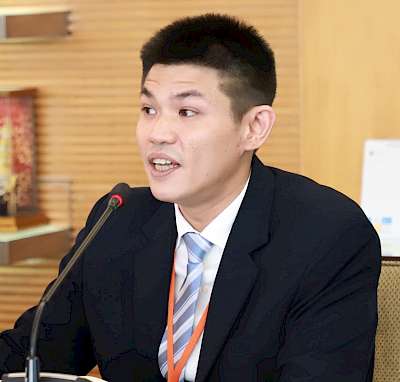 Treesuvit Arriyavat (David), Project Manager, ASEAN Circular Economy Stakeholder Platform
Treesuvit Arriyavat (David), Project Manager, ASEAN Circular Economy Stakeholder Platform
David is a PhD candidate in Management at the College of Management, Mahidol University, Bangkok, Thailand. He holds significant experience in managing projects within the ASEAN context. Currently, David serves as the project manager for the ASEAN Circular Economy Stakeholder Platform (ACESP) at the ASEAN Centre for Sustainable Development Studies and Dialogue (ACSDSD) at Mahidol University, Bangkok. In this capacity, he is responsible for establishing and overseeing the day-to-day operations of the ACESP Secretariat. This role encompasses various tasks, including project coordination, management of the knowledge and information portal, as well as communication and outreach efforts.
Moderators
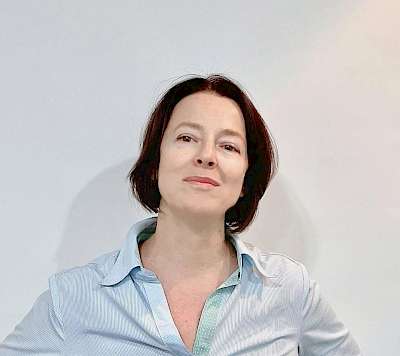 Zinaida Fadeeva, Team Leader at the SWITCH-Asia Policy Support Component
Zinaida Fadeeva, Team Leader at the SWITCH-Asia Policy Support Component
Zinaida Fadeeva is the Team Leader of the Policy Support Component of the SWITCH-Asia Programme. Zinaida has over 25 years leading international professional experience in policy for and practice of sustainable consumption and production (SCP) and Education for Sustainable Development, amongst others working with the United Nations University Institute for the Advanced Studies of Sustainability (UNU-IAS). Her work has focused on diverse topics such as tourism, plastics, construction, small and medium enterprises, procurement and lifestyle. Zinaida has worked extensively with governments, private sector, international organisations and academia in East, South East, South and Central Asia.
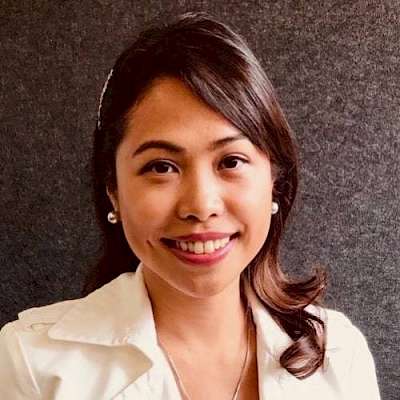 Loraine Gatlabayan, Key Expert on SCP awareness raising and regional partnership building at the SWITCH-Asia Policy Support Component
Loraine Gatlabayan, Key Expert on SCP awareness raising and regional partnership building at the SWITCH-Asia Policy Support Component
Loraine is the Key Expert on SCP awareness raising and regional partnership building of the SWITCH-Asia Policy Support Component of the SWITCH-Asia Programme. She did consultancy work from 2013-2018 in the Asian Development Bank, the United Nations Environment Programme - Regional Office in Asia and Pacific based in Bangkok, Thailand and the Asia-Pacific Roundtable on Sustainable Consumption and Production (APRSCP) activities, where she is currently treasurer and board member. She has also worked at the Climate Change Commission (CCC) the Philippines as Division Chief for Knowledge Management, Director of the Center for Social Policy in the Ateneo School of Government, Ateneo de Manila University, Philippines, and lead various regional, national, and local projects focusing biosafety, access rights in environmental decision- making, transparency and accountability, climate change, and resource efficiency.
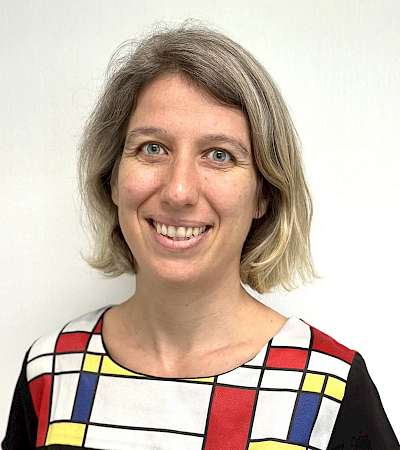 Elodie Maria-Sube, Expert on EU policy development and partnership building at the SWITCH-Asia Policy Support Component
Elodie Maria-Sube, Expert on EU policy development and partnership building at the SWITCH-Asia Policy Support Component
Elodie is the Key Expert on EU policy development and partnership building of the SWITCH-Asia Policy Support Component of the SWITCH-Asia Programme. She is specialized in European Affairs related to topics of circular economy, SCP, climate change and environmental management, and has extensive experience in stakeholder consultation and engagement at the EU level, as well as with high-level officials in Ministries of Environment and Finance in Asia. For over a decade, Elodie has worked in South and South-East Asia on environment and climate change. She is currently leading the SWITCH-Asia Technical Advisory project on Sustainable/ Green Public Procurement for Transformation.
Speakers
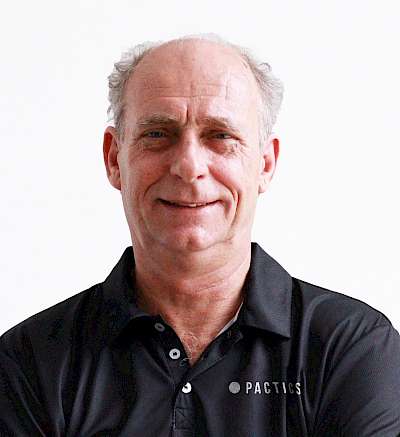
Arjen Laan, CEO at Pactics
Arjen Laan is the current CEO of Pactics and has held various other management positions in the past. Arjen started his career as a nurse and held several management positions in a hospital in Amsterdam. After this he worked in various countries with MSF (Medecins sans Frontieres) and became Executive Boardmember. In 2003, he became the director of HR at Redevco, a large privatly owned Commercial Reals Estate Company with assest in mutiple European countries. He moved to Cambodia in 2013. After a brief stint as the Chief Business Officer at Angkor Hospital for Children he joined Pactics in 2017. Arjen Laan's educational career began with him attending CICSA Amsterdam. Arjen then went on to study MBA at NIMBAS, Bradford - Graduate School of Management.
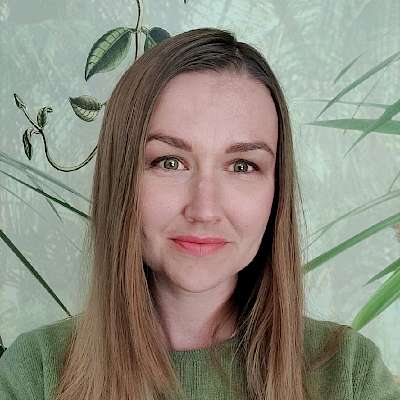 Katia Dayan Vladimirova, Founder and Coordinator, International Research Network on Sustainable Fashion Consumption
Katia Dayan Vladimirova, Founder and Coordinator, International Research Network on Sustainable Fashion Consumption
Katia Dayan Vladimirova is an academic researcher at the University of Geneva. She holds a Master in Global History from the London School of Economics and a double PhD in political theory (climate ethics) from University Guido Carli in Rome and in political science (climate politics) from the Free University of Brussels. Katia has worked at various universities around the world, including New York University, MIT, Boston University, and University Milan-Bicocca. Since 2017, she has been dedicated to researching fashion consumption and systems change towards sustainability in the fashion industry. Her primary areas of interest include minimalism and sufficiency in fashion consumption, policy around fashion and textiles, and new circular business models in the fashion industry.
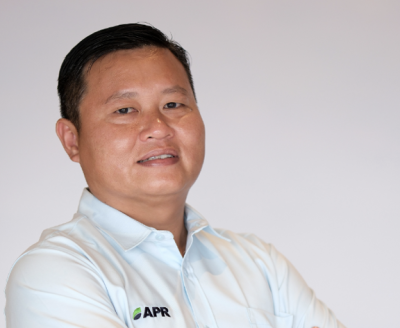 Djemi Gunawan, Head of Circularity at Asia Pacific Rayon
Djemi Gunawan, Head of Circularity at Asia Pacific Rayon
Djemi Gunawan is the Head of Textile Circularity Sourcing at Asia Pacific Rayon, based in Jakarta. He has over 22 years of experience in the textile industry and is currently working to lead and drive the entire recycled textile sourcing method. Since December 2022, in partnership with multiple stakeholders, he has been implementing a waste management system for Pre & Post Consumer Textile Waste in Indonesia. Prior to joining Asia Pacific Rayon, Djemi served in a Brand & Supply Chain Management company, managing raw material and sustainable material sourcing strategies for the region.
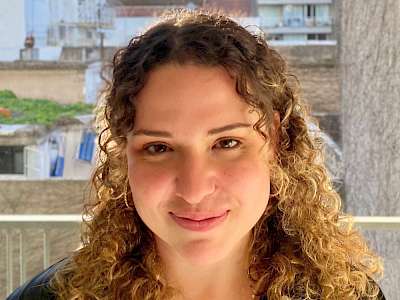 Alyssa Erin Kardos Loera, CEO & Creator at ReMade in Cambodia
Alyssa Erin Kardos Loera, CEO & Creator at ReMade in Cambodia
Alyssa Erin Kardos Loera discovered her creativity at the intersection of global health and the arts. With a bachelor’s degree in Global Health from Georgetown University and enriched experience at the Laboratory for Global Performance and Politics, she channels this amalgamation of knowledge and artistic expression to enhance community well-being. A former Fulbright Scholar in Cambodia and current IIE Centennial Fellow, she remains dedicated to driving positive change through her interdisciplinary pursuits.
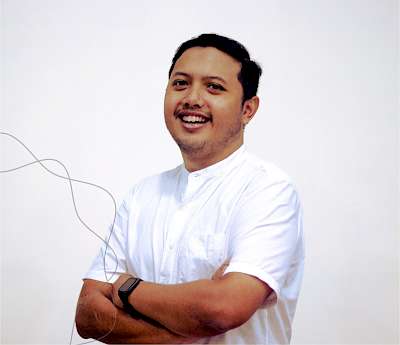 Adi Reza, Founder of Mycotech Lab (MYCL)
Adi Reza, Founder of Mycotech Lab (MYCL)
Adi Reza is the Co-founder and CEO of MYCL, a biotech startup specializing in the production of sustainable materials for the global market. MYCL is dedicated to providing high-performance, environmentally friendly biomaterials for use in fashion and construction applications. Having graduated from the School of Architecture at the Bandung Institute of Technology (ITB) in Indonesia, he has demonstrated a longstanding passion for entrepreneurship. MYCL has garnered recognition both domestically and internationally, including at events such as the 2017 Architecture & Urban Design Biennale in Seoul, the 2018 DBS Social Enterprise Awards, and the 2019 MIT Solve Circular Economy Challenge.
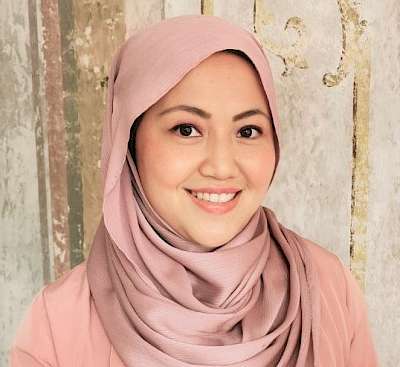 Sarah Kedah, CO-founder at Klothcircularity
Sarah Kedah, CO-founder at Klothcircularity
Sarah is a Fellow of the Certified Chartered Accountants and a member of the Malaysian Institute of Accountants (MIA). After living in Dublin, Ireland for almost 8 years, she returned to Malaysia where she worked for four years at a government-linked company in KL. Following that, she and her best friend, Nik Suzy Hassan, co-founded Kloth in 2013. Kloth has since expanded to include brands such as Kloth Cares, Kloth Woman Up, Kloth Textile, Kloth Wear and Crush-It by Kloth Cares, all with the basic goal of accelerating the textiles, clothing and plastics circular economy in Malaysia, Singapore, United Arab Emirates and beyond.
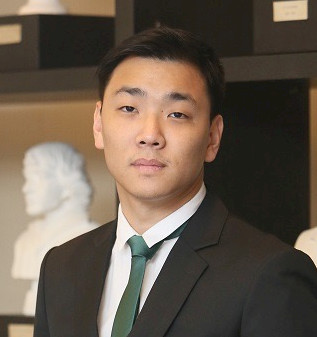 Wasin Thumrongsakunvong, General Manager at Interhides
Wasin Thumrongsakunvong, General Manager at Interhides
Wasin Thumrongsakunvong serves as a Director on the Board of Interhides Public Company Limited, where he also holds the roles of General Manager at the corporate level and President of the Shoe Leather Division. He earned a Bachelor of Economics from Pennsylvania State University followed by an MBA from Sasin.
Agenda
|
|
|
|
15:00 |
Introduction to the ASEAN Circular Economy Stakeholder Platform Anthony PRAMUALRATANA and Treesuvit Arriyavat (David), ASEAN Circular Economy Stakeholder Platform |
|
15.05 |
Understanding Fashion Footprint Elodie MARIA-SUBE, Key Expert on EU policy development and partnership building at the SWITCH-Asia Policy Support Component |
|
15:10 |
Panel Discussion: Sustainable Consumption and Production Strategies for Circular Fashion
Moderated by Elodie MARIA-SUBE, Key Expert on EU policy development and partnership building at the SWITCH-Asia Policy Support Component |
|
15:30 |
Panel Discussion: Consumer Awareness and Behaviour Change Towards Slow Fashion
Moderated by Loraine GATLABAYAN, Key Expert on SCP awareness raising and regional partnership building at the SWITCH-Asia Policy Support Component |
|
15:50 |
Panel Discussion: Driving Systemic Change in the Fashion Industry Through Multi-Stakeholder Partnerships:
Moderated by Zinaida FADEEVA, Team Leader, SWITCH-Asia Policy Support Component |
|
16:10 |
Q&A |
|
16:30 |
Concluding remarks and vote of thanks. Anthony PRAMUALRATANA and Treesuvit Arriyavat (David), ASEAN Circular Economy Stakeholder Platform |
[1] https://blog.cleanhub.com/beauty-industry-environmental-impact#:~:text=The%20beauty%20industry%20produces%20at,to%20reconsider%20their%20environmental%20impact.
[1] https://www.worldbank.org/en/news/feature/2019/09/23/costo-moda-medio-ambiente
[2] https://www.nrdc.org/stories/new-york-exposing-fashion-industry-what-it-climate-nightmare#:~:text=Producing%20polyester%2C%20now%20the%20world%27s,continually%20send%20into%20the%20sea.; https://www.unep.org/news-and-stories/story/fashions-tiny-hidden-secret
[3] https://www.worldbank.org/en/news/feature/2019/09/23/costo-moda-medio-ambiente; https://www.unep.org/news-and-stories/blogpost/why-fast-fashion-needs-slow-down


